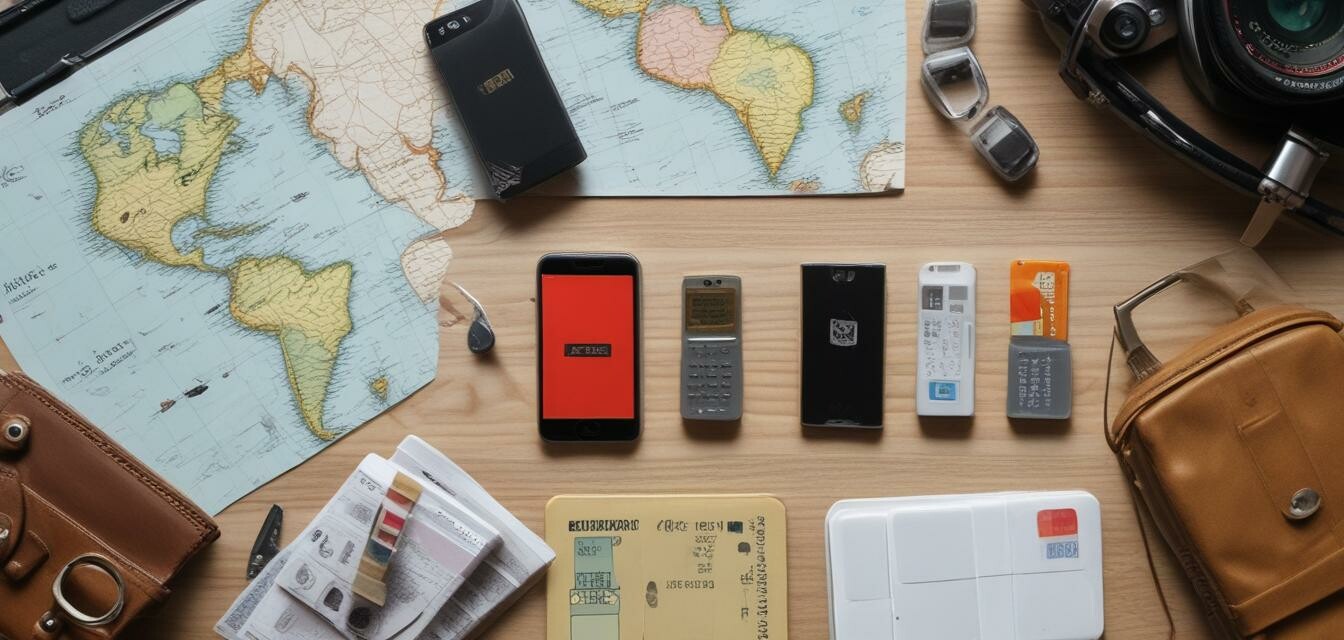
The Importance of SIM Card Backup Plans
Key Takeaways
- A backup SIM card ensures continuous connectivity while traveling.
- Staying organized with your SIM card can prevent potential issues.
- Understanding data plans will save you money during your travels.
- Proper management of SIM cards enhances overall travel experience.
- Switching between SIM cards can be seamless with the right tools.
Traveling can be an exhilarating experience, but staying connected is essential. One often overlooked aspect of international travel is managing your SIM cards. Having a backup SIM card can save you from potential connectivity headaches and ensure you can reach friends, family, or local services whenever you need to. In this article, we'll discuss the importance of having a SIM card backup plan and share effective tips for managing your backups wisely.
Why is a backup SIM card important?
The world is becoming increasingly interconnected, and maintaining effective communication while traveling is crucial. Here are some reasons why having a backup SIM card is fundamental:
- Unforeseen circumstances: SIM cards can malfunction or get lost. A backup ensures you're never without connectivity.
- Data plan flexibility: Switching to a backup SIM could save you money in regions where your primary SIM is expensive to use.
- Immediate access: In case of roaming issues, a backup can keep you online without delays.
How to manage your SIM card backups
Managing your SIM card backups effectively involves organization and strategic planning. Below are some actionable tips:
1. Organize your SIM cards
Storage solutions play a pivotal role in preventing accidental loss. Consider using a SIM card case or an organizer that allows you to keep all your cards neatly in one place.
| Storage Type | Description | Benefits |
|---|---|---|
| SIM Card Case | A compact holder for multiple SIM cards | Easy access; protects SIM cards from damage |
| SIM Card Organizer | A larger organizer with slots for multiple cards | Good for frequent travelers with several cards; keeps everything in one place |
2. Understand your data usage
Different countries have varying costs for data plans. Review your data plans before traveling to determine the most cost-effective option. This understanding allows you to maximize your data usage smartly.
3. Store important information
Make sure to jot down your primary SIM card details, such as the phone number and PIN codes. This information will be extremely useful if you need to access it quickly or if you're switching between cards.
4. Use SIM card adapters
Many devices require specific SIM card sizes. Having a SIM card adapter can help you fit your card neatly into your device, providing easy access when switching.
5. Test your backup card
Before your trip, make sure to test your backup SIM card to confirm it works correctly. This pre-trip assessment can help you avoid any last-minute anxiety.
Potential challenges and solutions
While managing your SIM card backups may seem straightforward, there can be challenges. Here are some common issues and how to overcome them:
Pros
- Reduces connectivity stress while traveling
- Prevents extra charges on your primary SIM
- Flexible options for different countries
Cons
- Extra cost for purchasing a backup SIM
- Potential confusion when managing multiple cards
Conclusion
Having a backup SIM card is not just a good idea; it's a crucial part of staying connected while traveling. By organizing your SIM cards, understanding your data needs, and equipping yourself with the right tools, you can focus on enjoying your trip without the fear of losing connectivity. For more tips on traveling, check out our Connectivity Tips blog category.
Key resources for travelers
Here are some useful resources to delve deeper into SIM card management: